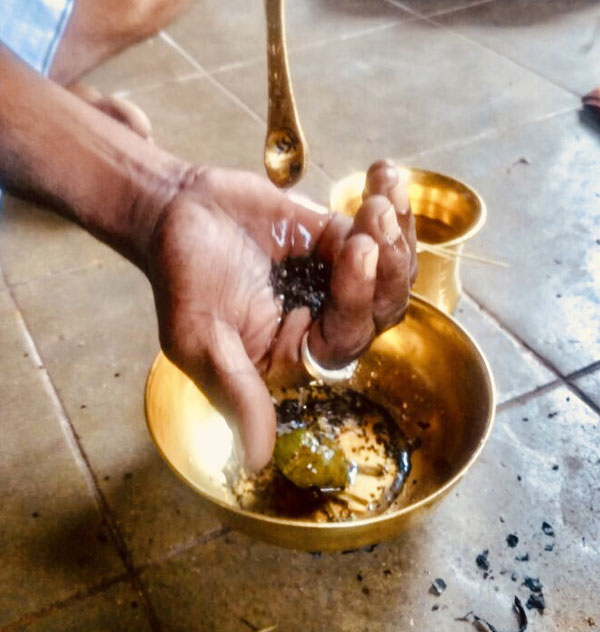
Amavasya Tarpan is a Hindu ritual performed on the day of Amavasya, which is the new moon day in the Hindu lunar calendar. The word "Tarpan" means offering or oblation, and this ritual is performed to offer oblations to one's ancestors, seeking their blessings and forgiveness.
The Amavasya Tarpan is typically performed by Hindus who believe in the concept of ancestral souls, which means that the souls of their departed ancestors are still present and can influence the lives of their descendants. The ritual is believed to help appease the ancestors and ensure their well-being in the afterlife.
The Amavasya Tarpan is typically performed by Brahmins or priests, who recite mantras and prayers while making offerings of water, rice, and sesame seeds. The offerings are made in a special vessel known as a Tarpana Patra, which is filled with water and other ingredients. The Brahmin or priest offers the Tarpana Patra to the ancestors, reciting prayers and mantras, and then pours the contents into a nearby water body, such as a river or lake.
The ritual is believed to be particularly important for those who have lost their parents or other close relatives, as it is believed that performing the Amavasya Tarpan can help ease the suffering of the departed souls and bring peace and prosperity to the living.
Note: Pandit ji has celestial instincts, keeping this in mind while booking the puja, note that no refund of any kind will be given after the puja is booked.
This fixed dakshina for all puja bookings is valid only in Varanasi. Dakshina will increase for puja bookings in other cities.